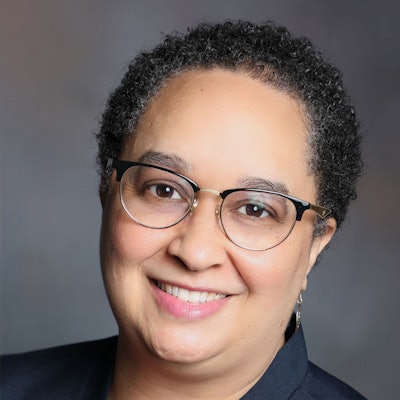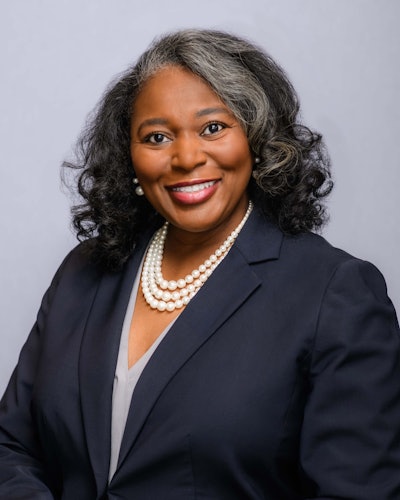Halima Monds was a first-year student at Spelman College when she joined SpelREADS, a program that pairs undergraduate tutors with students in Atlanta Public Schools to help boost their reading ability.
“With SpelREADS, it feels like I’m really making a difference,” Halima said at the time. “If a student is not reading on grade level, that’s a pipeline to prison. By disrupting the pipeline, it feels like I’m doing my part to help change the world.”
Thanks to a new change in America’s federal work-study program, thousands more students like Halima could soon become tutors in America’s public schools to aid in the national pandemic learning recovery — and potentially diversify our nation’s teaching workforce. Jilo Tisdale
Jilo Tisdale
On May 10, 2023, US Department of Education Secretary Dr. Miguel A. Cardona released a “Dear Colleague” letter asking colleges and universities that receive Federal Work Study to use at least 15% of these funds to pay college students to serve as tutors in local K-12 schools. Though the move was met with little fanfare, it could help schools simultaneously address two of the biggest challenges they face today: delivering high-impact tutoring to all students at scale and creating a diverse teacher workforce.
In the wake of the pandemic, America’s K-12 schools need resources and support to help boost student learning recovery. First- and second-grade student achievement at the end of the 2021–2022 school year is the lowest it’s been in 20 years. And in June 2023, the nation’s report card showed reading scores among 13-year-olds hit a 50-year low. Black, Hispanic, and American Indian/Alaska Native students and students in high-poverty schools were disproportionately impacted by school closures. The pandemic also exacerbated the achievement gap, as students who started with lower achievement experienced larger learning losses and saw less improvement in the 2021-2022 school year.
And yet, there’s reason for hope. Research shows that high-impact tutoring consistently produces positive results and is particularly effective for accelerating math and reading gains, especially when it’s delivered during the school day and in three or more sessions per week for a total of 90 minutes. High-impact tutoring models also utilize high-quality instructional materials and include mechanisms for collecting data on student progress. Unfortunately, these kinds of intensive tutoring models can be challenging for school districts to implement. They can be expensive and difficult to schedule, and they require a lot of human capital. But using work-study funds to pay college tutors will help.
Work study supports a diverse population of roughly 600,000 undergraduate and graduate students nationwide. At Spelman, one of America’s Historically Black Colleges and Universities (HBCUs), SpelREADS currently employs one in ten undergraduates. Though SpelREADS is not currently funded via work-study, with the support of additional work-study funding, Spelman could double the number of students who participate in the tutoring program.
At Accelerate, a national nonprofit whose mission is to help make high-impact tutoring a standard feature of the American school day, many of our Call to Effective Action grantees, such as Deans for Impact, Guilford County Schools (NC), The Literacy Lab, and Step Up Tutoring are already using college students as tutors.  Dr. Nakia Towns
Dr. Nakia Towns
With more work-study funds available to pay tutors, undergraduates in teacher preparation programs can gain valuable experience before they run their own classrooms, which can make them more effective teachers later on. And peer-adjacent tutors — those who are relatively close in age to their students — also help kids build meaningful relationships and stay engaged with lessons. These relationship benefits work both ways, as studies have shown that when undergraduate students participate in service programs like tutoring, it can increase feelings of self-worth and success — just as it did for Halima.
HBCUs like Spelman produce almost half of all Black teachers in America, despite making up only 3% of the nation’s higher education institutions. By paying undergraduate tutors who wouldn’t otherwise gravitate towards teaching, work-study tutoring programs could help diversify the teacher preparation talent pool, so that it better reflects the racial and ethnic diversity of our nation’s students. Extensive research indicates that student outcomes improve in early grades when students are taught by an educator that reflects their racial identity. While the number of teachers of color has increased dramatically since 1990, it still hasn’t caught up with the diversity of our nation’s students. By recruiting more tutors with diverse backgrounds and potentially retaining them as teachers, student outcomes could improve even faster, helping to close the achievement divide.
On the ground in Atlanta Public SChools, educators have seen firsthand what a difference it has made for their students to receive individualized attention from SpelREADS tutors who look like them. “The Spelman tutors [provide my students] with examples of positive young people with whom they can identify and who care enough about them to show up over and over again,” said Joseph Salley, principal of Kimberly Elementary School in Atlanta Public Schools.
Keith Tennyson, a reading specialist at Dunbar Elementary School, said that when the SpelREADS tutors come to his classroom, “students get a chance to see ‘she looks like me’ and that gives them motivation. It makes them worker harder and … helps them do better.”
Through work study tutoring, America has an opportunity to not only provide paid apprenticeships to college students already enrolled in teacher preparation programs, but also to attract more students from other majors to the teaching profession and expose them to the joys of the classroom. For students who are not already on track to become a teacher, tutoring is a great introduction to a fulfilling career in education.
We applaud the US Department of Education for making this call to action. We look forward to a future when all students in the US receive high-quality tutoring to excel in school, and where the diversity of our teaching workforce reflects the diversity of our nation’s students.
Jilo Tisdale is Director of the Bonner Office of Civic Engagement at Spelman College.
Dr. Nakia Towns is Chief Program Officer at Accelerate





















